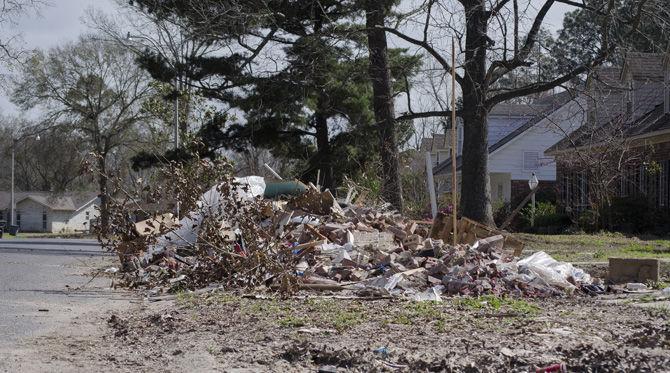Many people are quick to travel across state and country borders, but fail to look at what’s happening in their own backyards. Houston, Miami, Mexico, Haiti, Puerto Rico and several African countries need our help but so do our own communities.
According to Baylor University, roughly $2 billion is spent for over 1.5 million Americans to participate in short-term mission trips annually. This isn’t a bad thing — we should never refuse a helping hand when it is needed. Not only is people’s willingness to give generous but it is humble, especially after it seemed help was prolonged after Hurricane Katrina and last year’s flood. However, the notion our resources are most useful elsewhere or only during natural disasters is false. You don’t have to travel to another city or country or wait for destruction to find missionary work.
The 2015 U.S. Census data showed almost one in five Louisiana residents lived in poverty the previous year. According to USA Today, one out of every four children in Louisiana live in poverty — a statistic that hasn’t changed since the late ‘90s. The families here need access to the same resources as families elsewhere.
We’re quick to collect and donate food and clothes after natural disasters, but there are people without these same necessities down the street. I’m sure our reason for being so quick to give is because everyone in the South experiences floods and hurricanes, whereas not everyone has experienced impoverishment. It’s our responsibility to open our eyes to what’s going on around us. We shouldn’t become accustomed to people begging for money at the intersection or sleeping under bridges or benches every night.
Social media constantly reminds us of the struggles other communities face. Yet, just because it doesn’t appear on the news doesn’t mean it isn’t happening. Cities such as New Orleans are still rebuilding from when Hurricane Katrina made landfall 12 years ago and Baton Rouge and surrounding areas are still recovering from the massive flood last year. Even though the media stopped reporting it doesn’t mean it’s no longer prevalent or that help is no longer needed.
We can travel all day, but let’s not forget about the troubles in our own backyards. We must become long-term investors in our communities. As an American in one of the richest countries in the world, there’s no need to limit ourselves to the amount of aid we give. It is very possible to help others while helping ourselves, and doing both is truly necessary. The more prosperous our community is, the more resources we’ll have accumulated and the more we’ll be able to give. As the old adage says, “Before you help others, you must first help yourself.”
Clarke Perkins is a 21-year-old political science senior from New Orleans, Louisiana.





